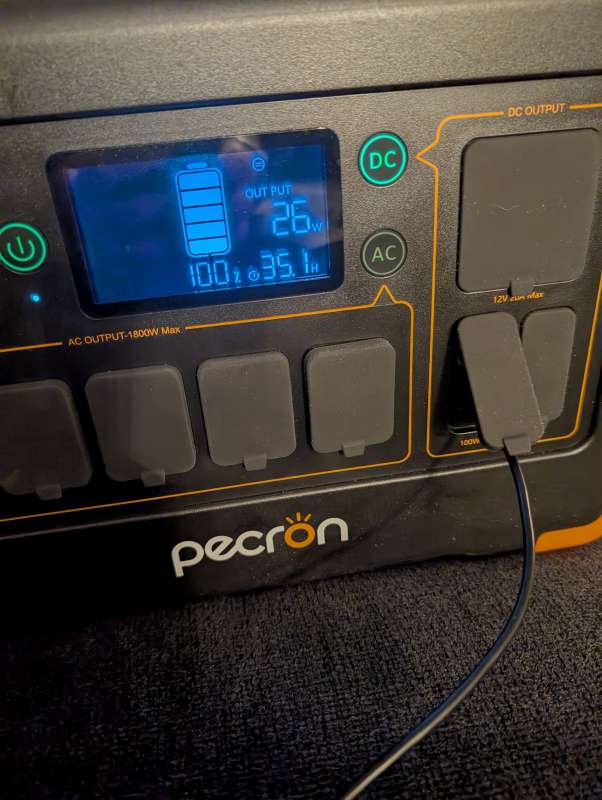
REVIEW – Portable power options have blossomed over the past few years. No longer are the primary options just gas generators. The Pecron E1000LFP came up for review and I wanted to see how it stacked up against similar power stations I’ve seen. It looked like it met the sweet spot for me in size and power availability. Pecron is also no stranger to The Gadgeteer website as we’ve reviewed a number of their products over the past few years. Read on to see how this power station held up!
⬇︎ Jump to summary (pros/cons)
Price: $399.00 (regular price is $799.00)
Where to buy: Pecron and Amazon
What is it?
The PECRON E1000LFP Portable Power Station is an 1800W, 1024Wh battery with a lot of options for power delivery and charging.
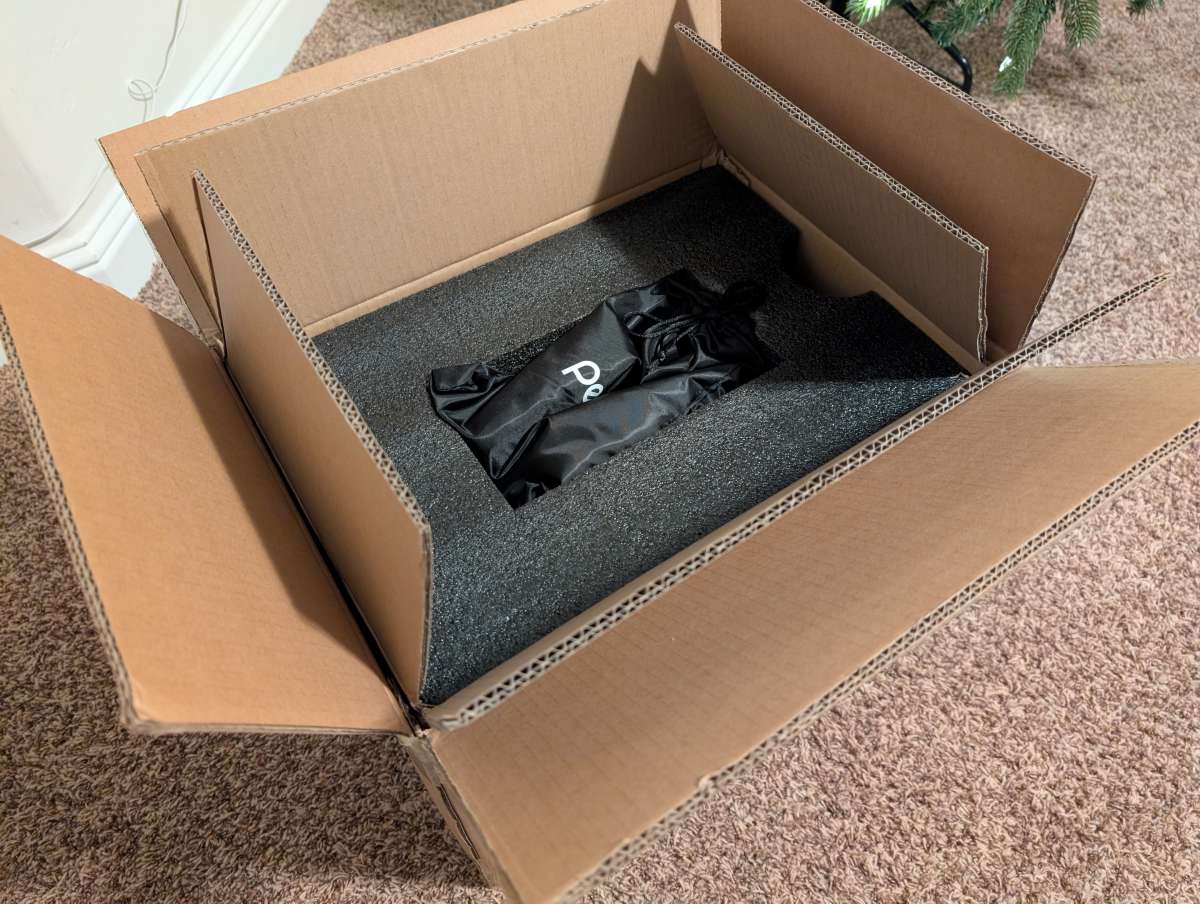
What’s included?
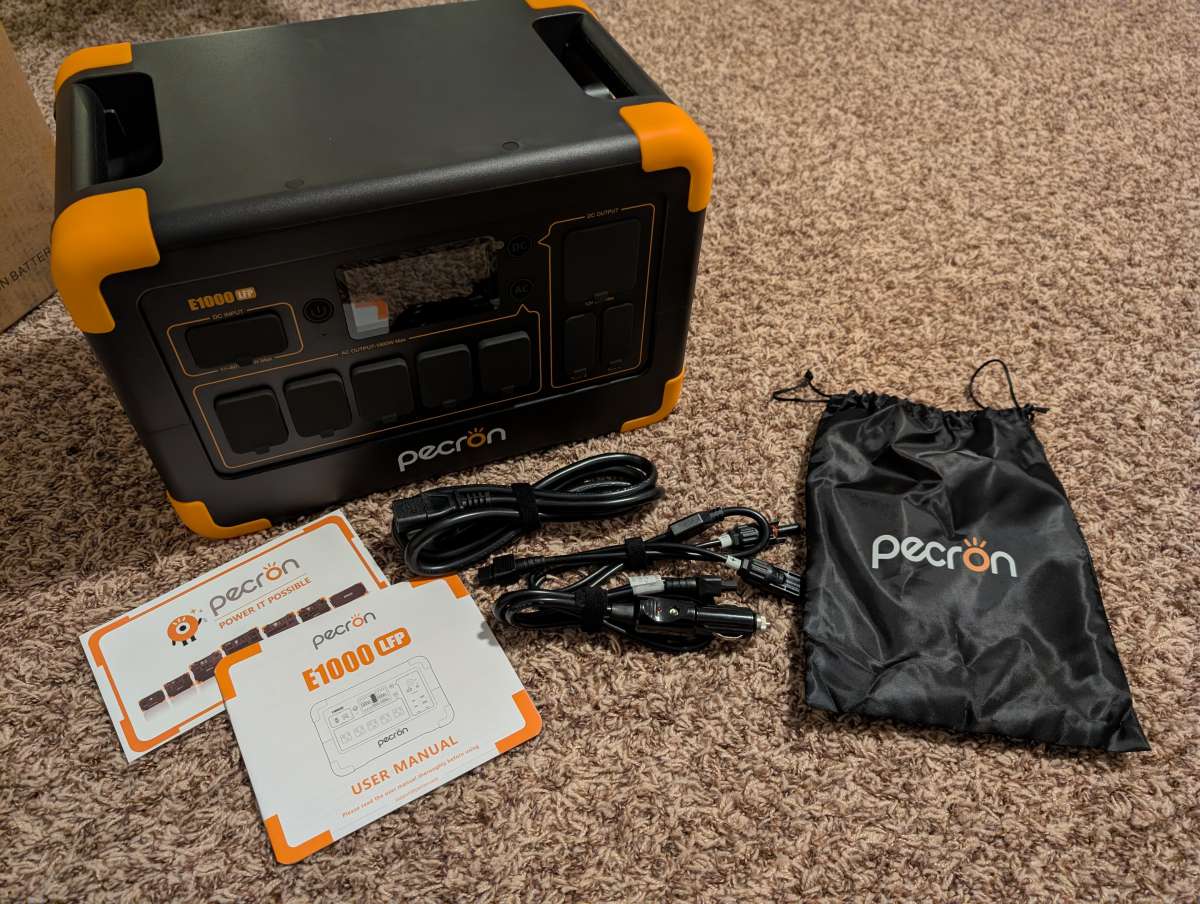
- E1000LFP Power Station
- AC Cable
- Single port XT60 to MC4 solar charging cable
- Cigarette lighter charging cable
- Accessory bag
- User Manual
Tech Specs
- Rated Power: 1800W
- Peak Power: 3000W
- Capacity: 1024Wh
- Output Volts: 100V~120V Pure Sine Wave
- Dimension: L14.9*W9.4*H10 in
- Battery Type: LiFePo4
- Weight : 29lbs(13.5Kg)
- DC Output: 20A(12V)
- Solar Input: XT60: Voc 11V~60V / 600W Max / 20A Max
- Car Input: DC 12V~18V-100W Max
- AC Input: 100V~120V/ 1000W
- Charging Time: 1.3 Hours
- Smart APP: Yes
- Wifi connect: Wifi remote control
- Charge Temperature: -10°C~45°C / 32°F-113°F
- Discharge Temperature: -20°C~45°C / -4°F-113°F
‼️ This product uses a high-voltage lithium battery and poses a fire risk. Never leave the battery unattended while charging, and always disconnect the charger once the battery is full. Learn more about lithium battery safety here.
Design and features
The PECRON E1000LFP is a mid-sized power station compared to other stations that I’ve seen. The design is solid, with good handles on each side of the top. The corners all have solid bumpers on them that provide a non-slip grip and provides some protection.
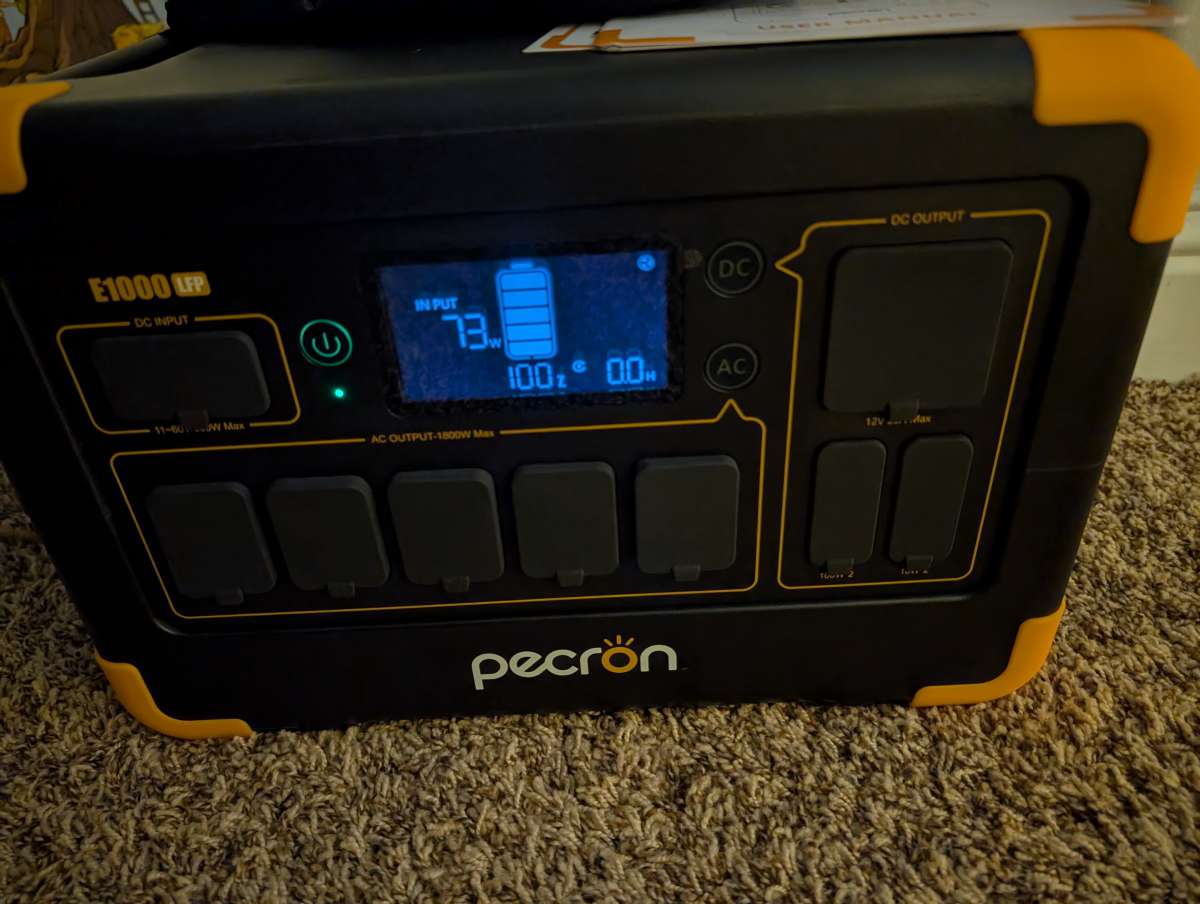
The AC input is protected by a 20A fuse and provides for a very fast charge. From a 50 percent charge to full it took about a half hour.
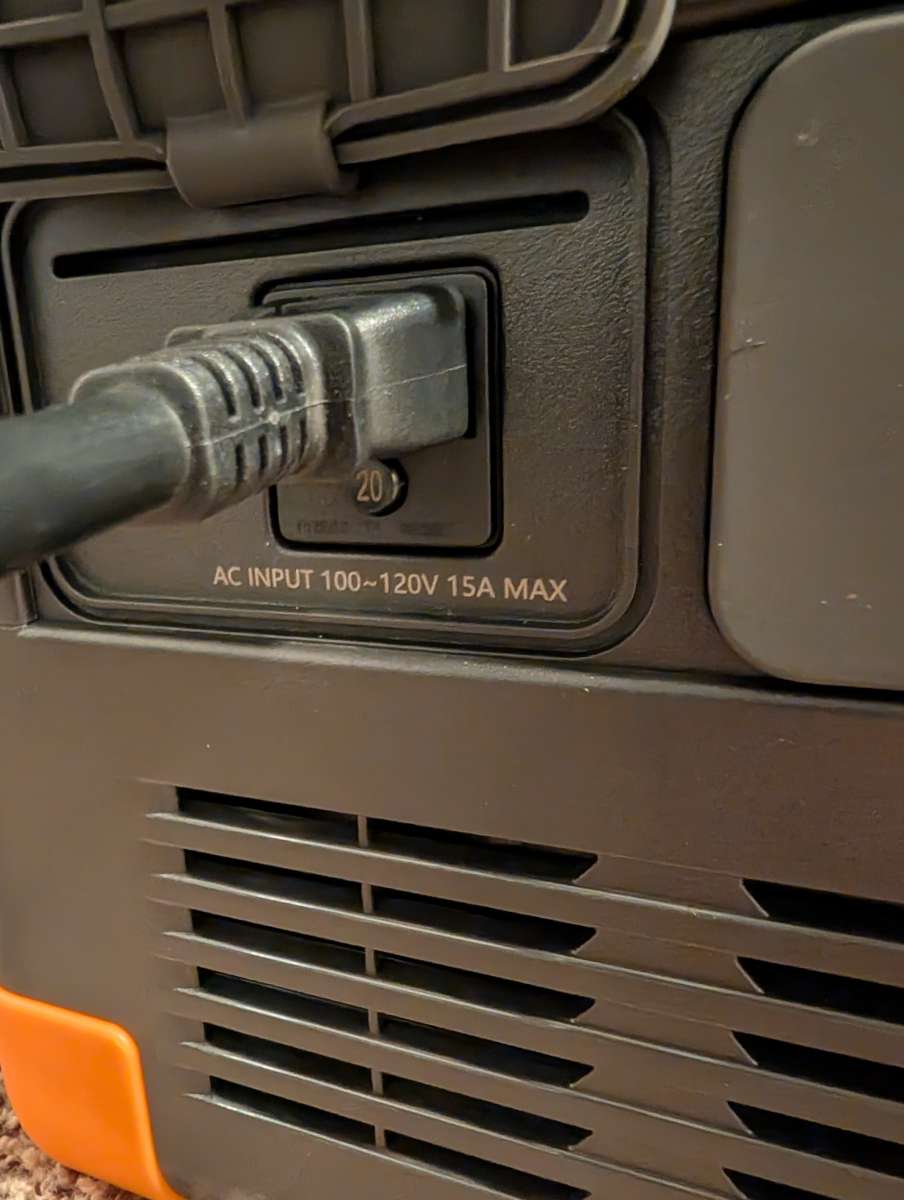
Additional inputs for a car charger and solar panels are also available. Please note the user manual recommendation for amperage selection.
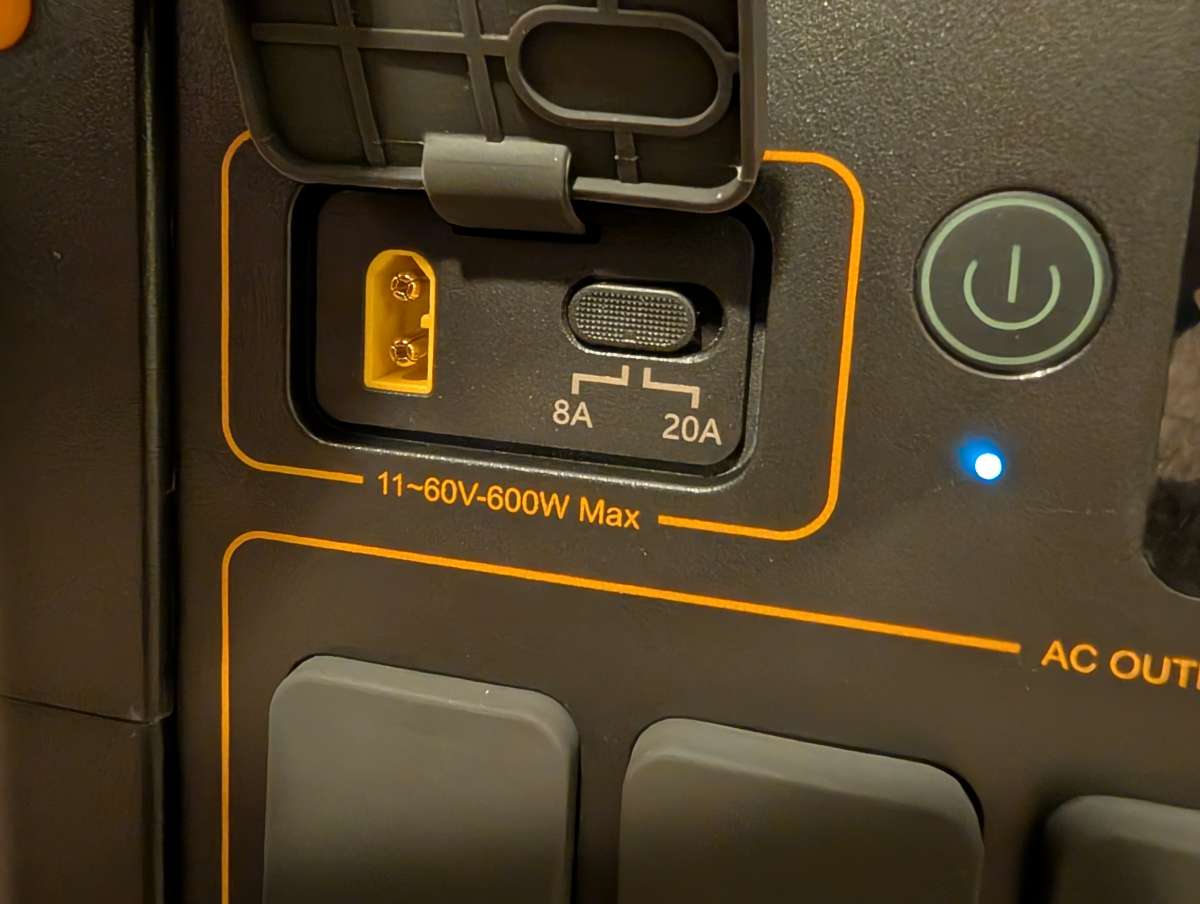
Each of the different power ports is clearly labeled in addition to a good cover. The labeling and definition really impressed me.
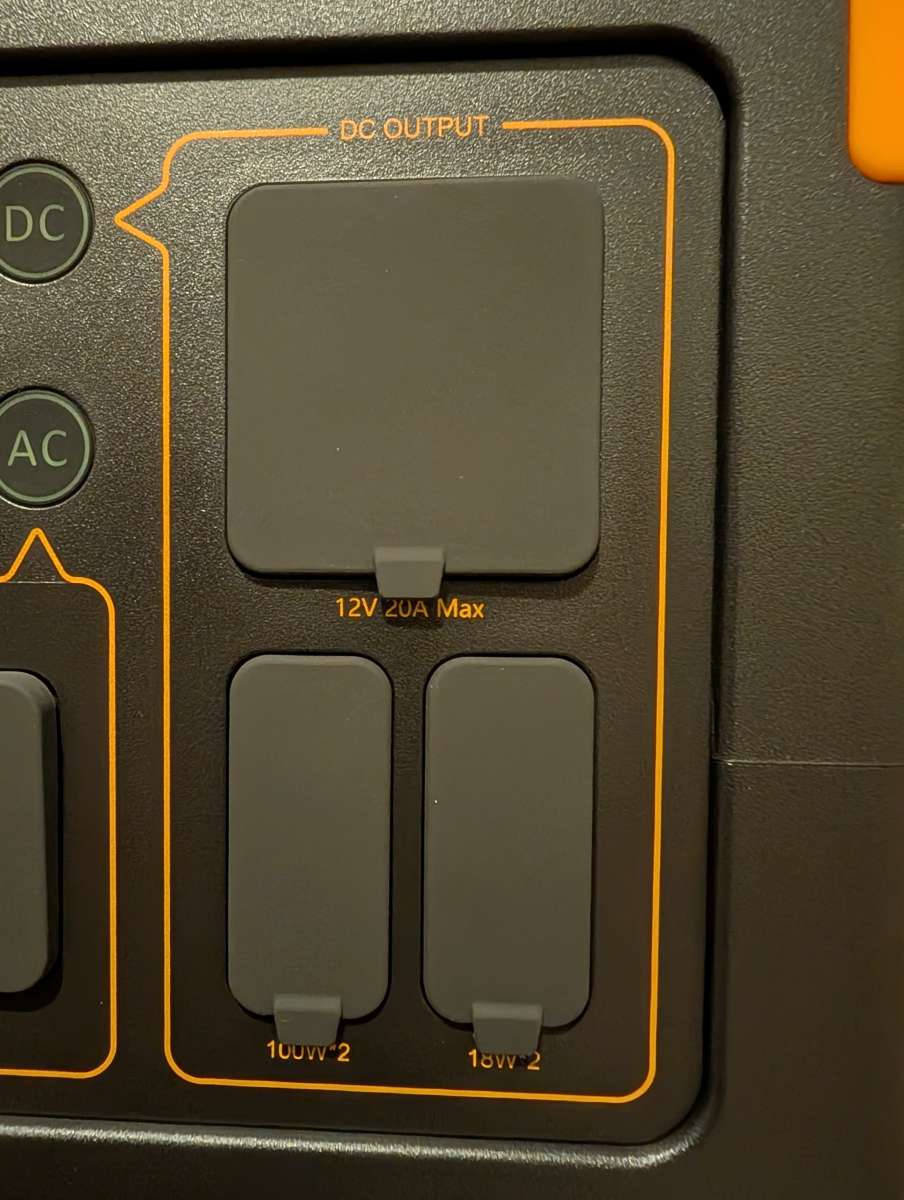
Two sets of USB ports, both Type A and Type C, are another great addition.
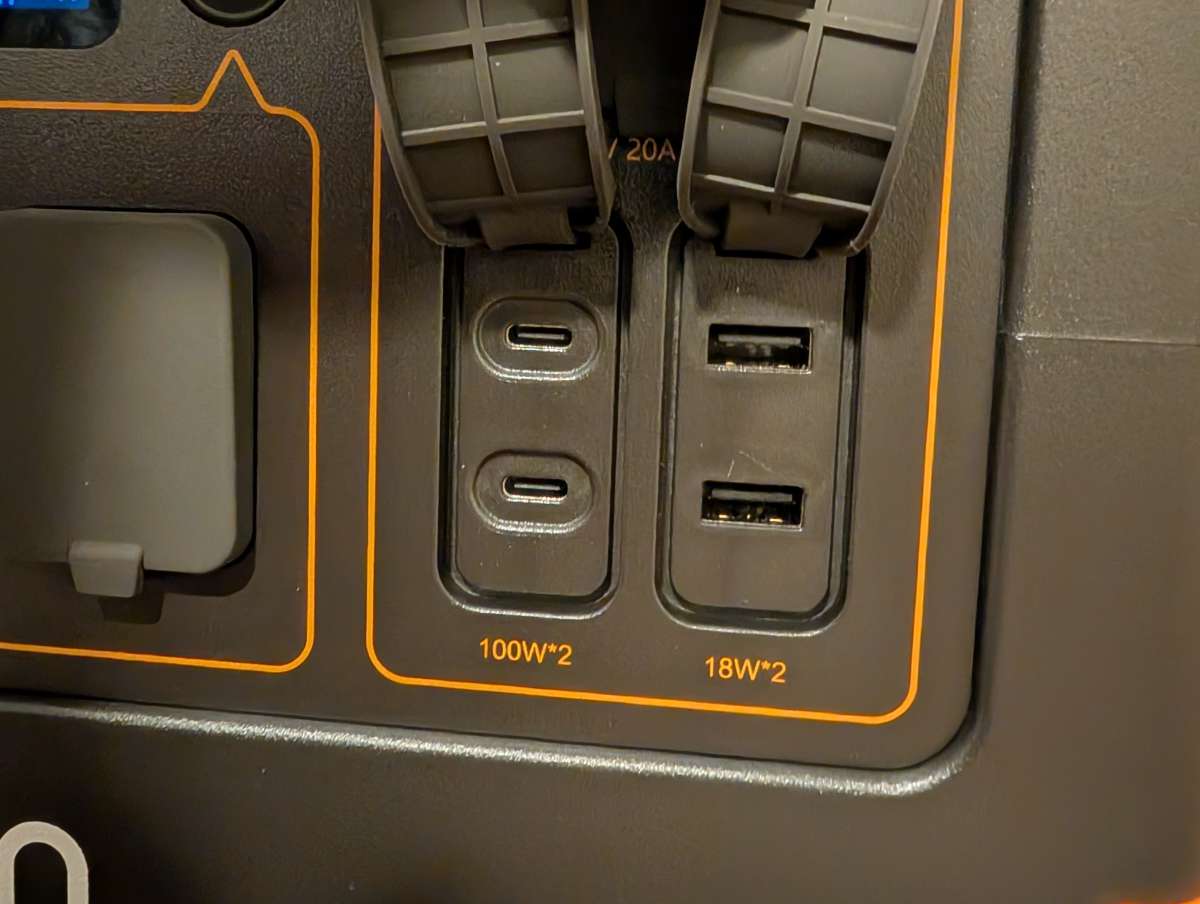
Five AC output ports are also a fantastic feature. As you add devices, make sure to watch your output wattage to ensure that you don’t exceed 1800 Watts.
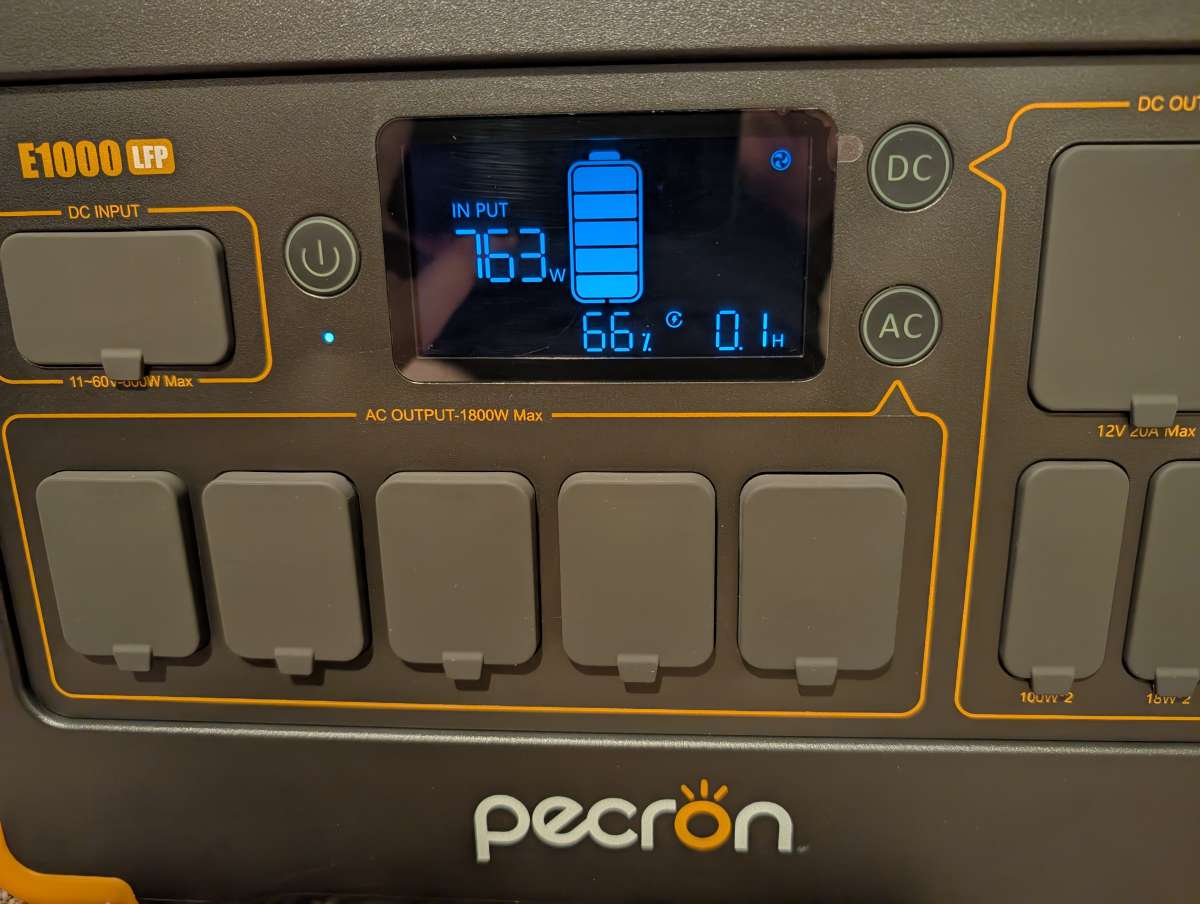
Setup
The setup and design of the PECRON E1000LFP power station is very easy. The ports are all clearly labeled and each different “zone” is circled in orange. The initial charge of the device took less than an hour.
Pecron has an app that you can connect to that allows you to remotely monitor the device’s performance. It took me a minute to find the line in the user manual that describes how to put it into connectivity mode (Press and hold the AC and DC buttons).

Once connected, all of the options and controls are available in the app. You can see the output in addition to the estimated life left. One of my favorite little additions here is a copy of the user manual in the app itself. Everything in one spot is always a great addition.
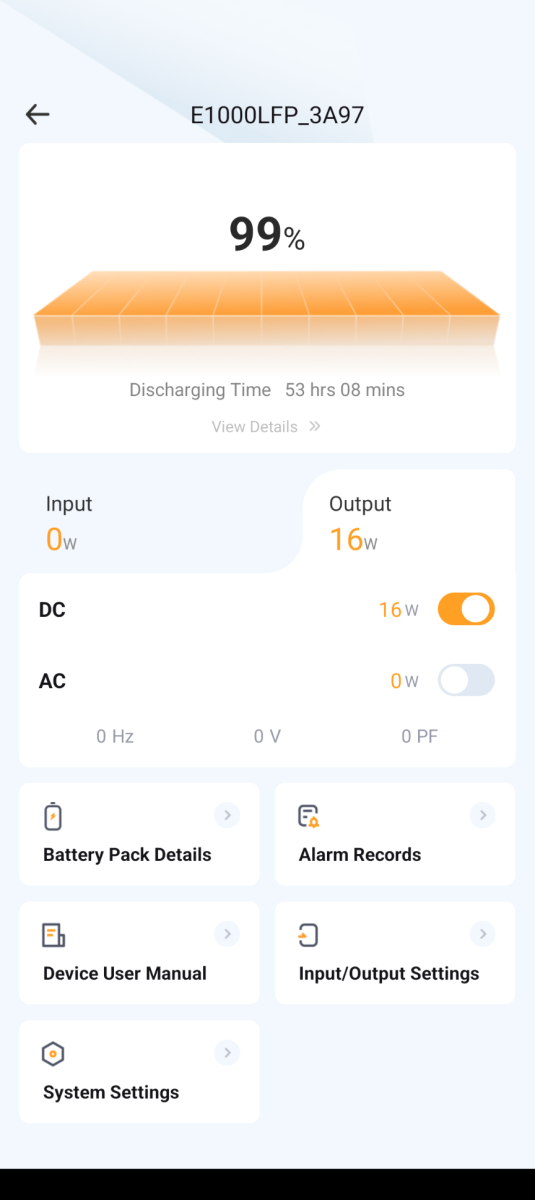
Performance
I connected this to several devices in the kitchen and out in the garage and it worked great for everything. The below picture is our trusty rice cooker starting 3 cups of rice, just under 400 watts.
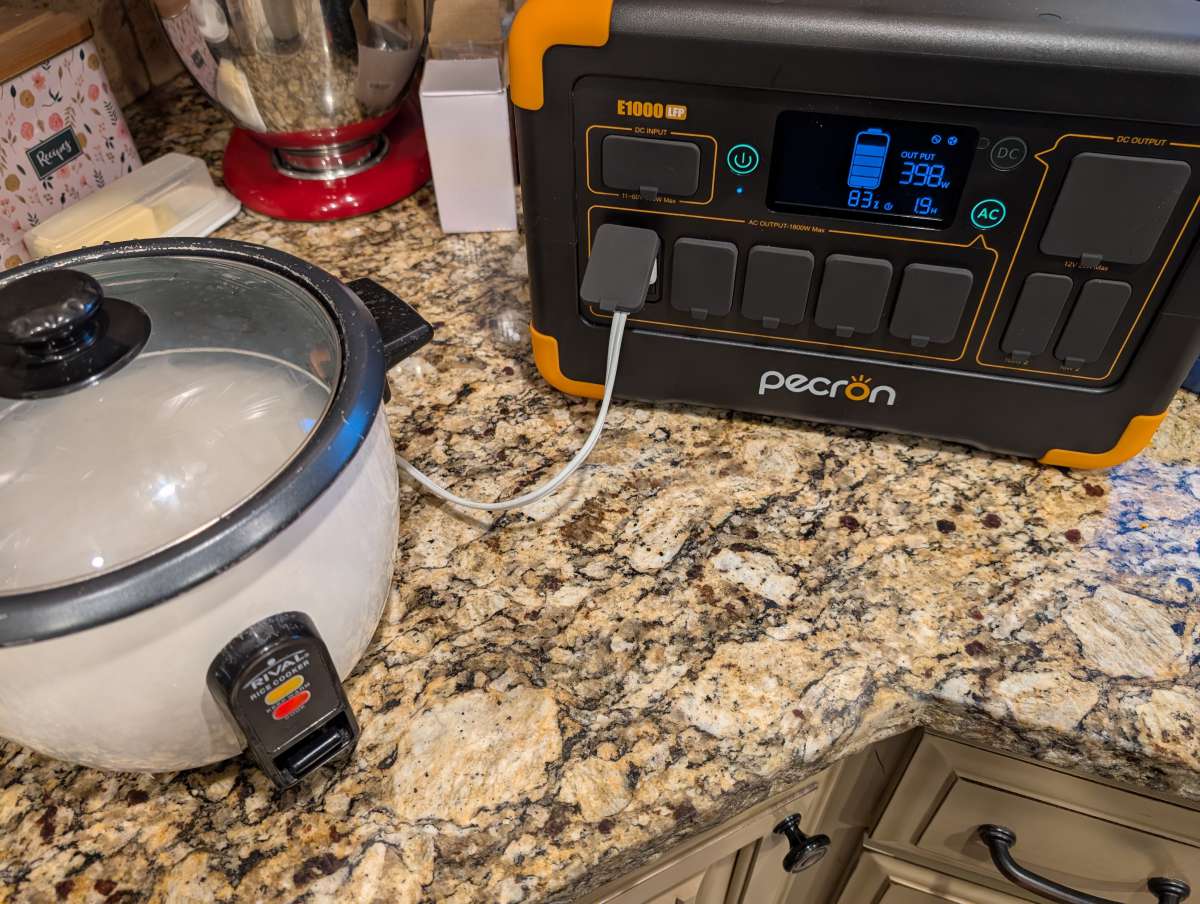
Rice finished cooking and on the warm setting. 13 watts and about 17 percent of the battery storage consumed in the process.
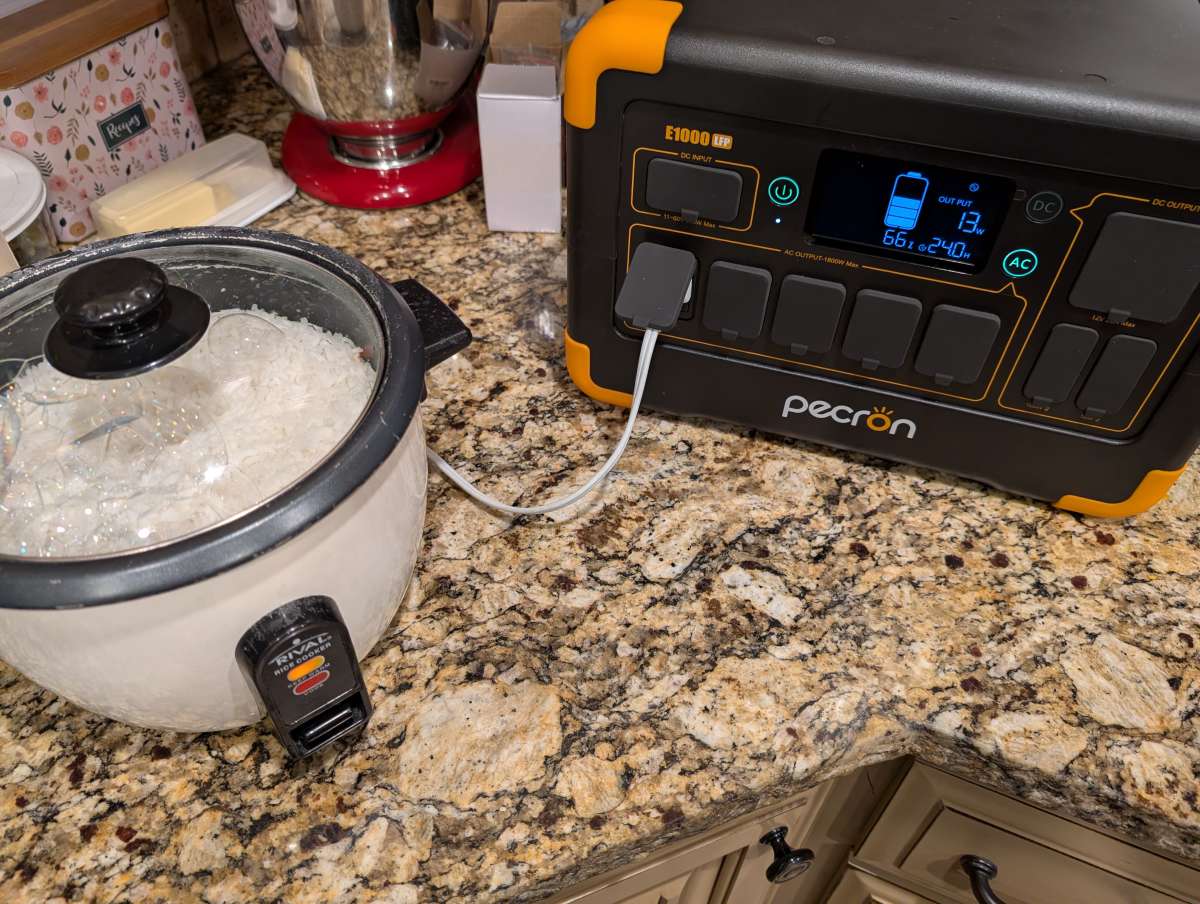
Running a Kitchenaid stand mixer was an interesting exercise. Running a device with a large motor, you’ll see some interesting behavior as there is a large initial draw as the motor starts and then it drops down. This isn’t at load, but without a load, it only drew 25 watts, down from about 140 watts at the start.
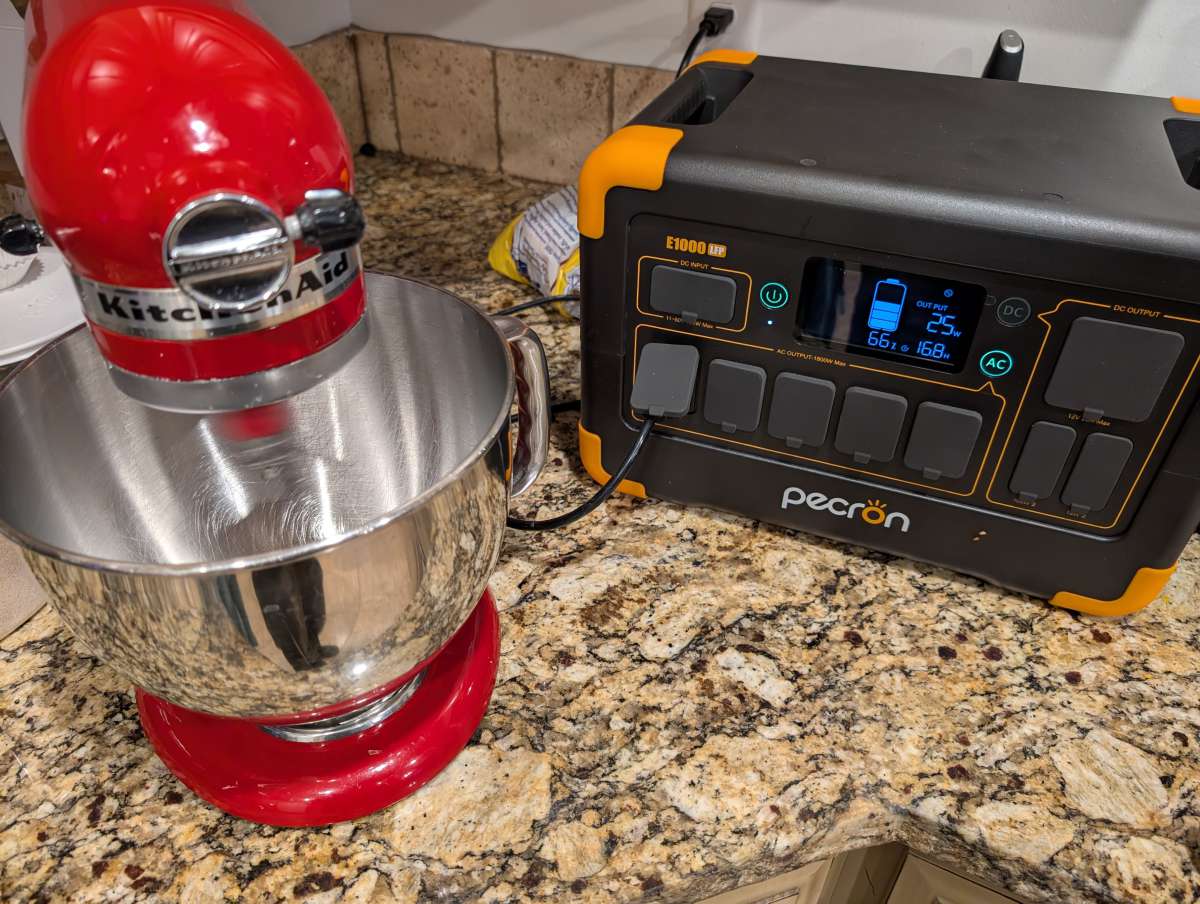
The biggest device power draw I tested was an electric kettle. If you don’t have one, you need one! We use it all the time. The below picture is with lukewarm water straight from the tap.
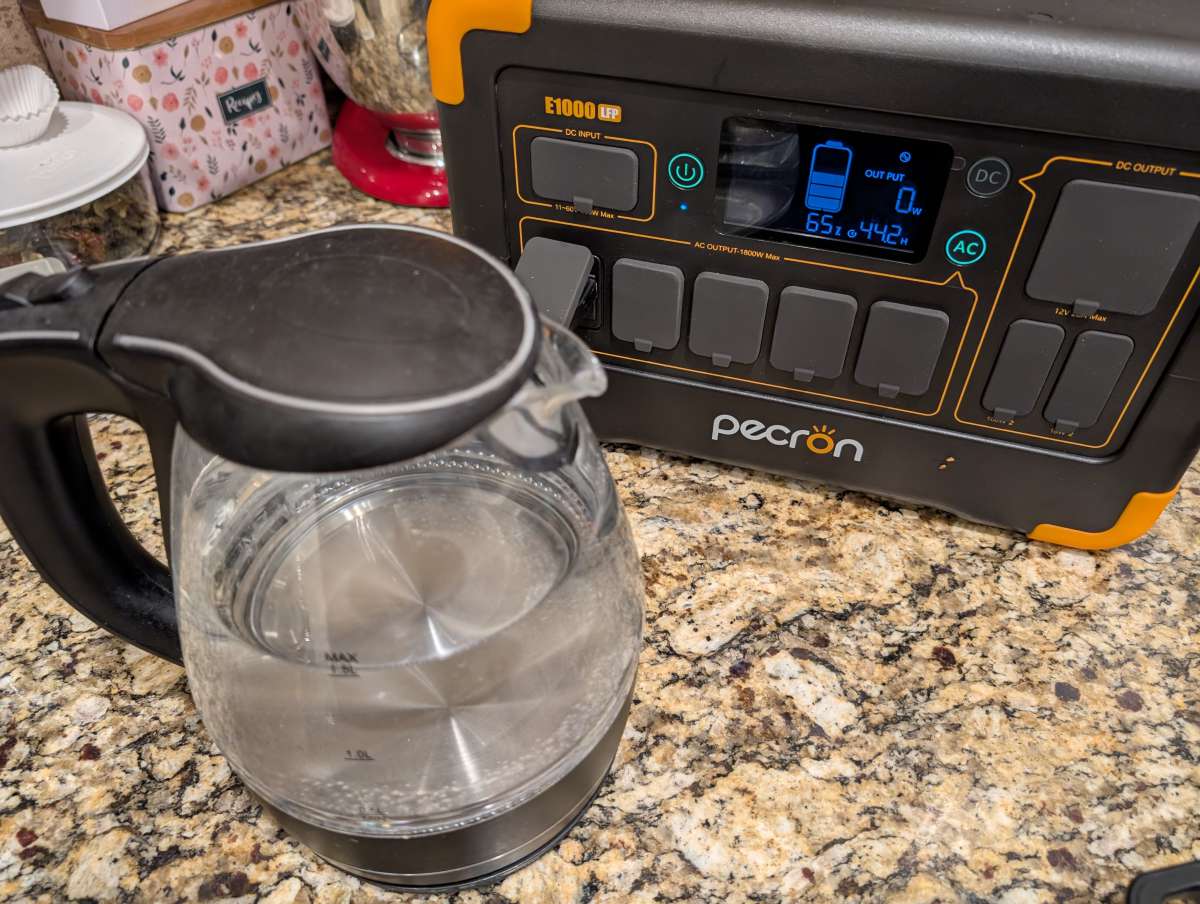
Firing it up, the draw peaked at 1074 watts. This is a lot, but it makes sense in a device designed to heat water up very quickly.
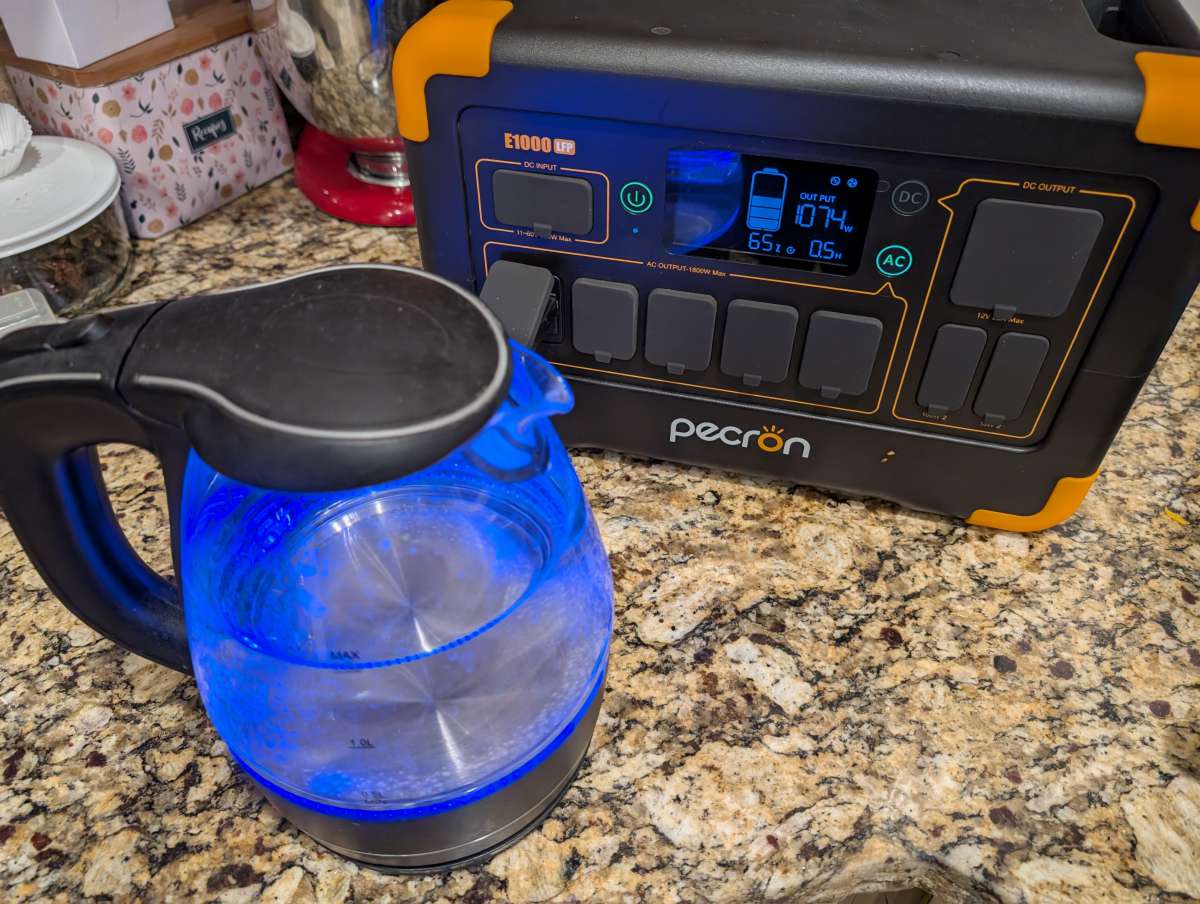
Start to finish, it took about 16 percent of the battery to heat this kettle.
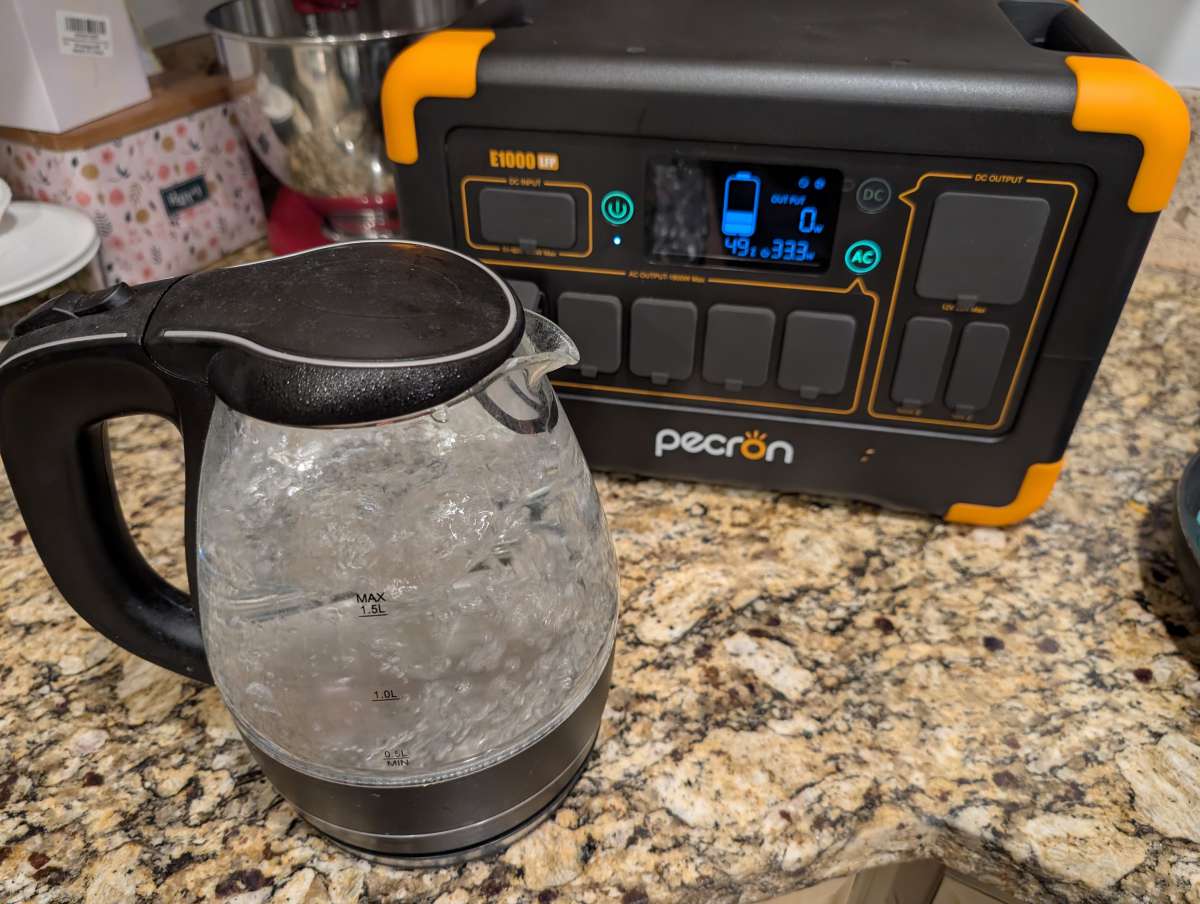
Out in the garage, the PECRON E1000LFP worked really well with a Dremel and power sander. Most of my tools are battery powered, but I do have a few corded devices around. This will be very handy when I need to use tools and don’t want to run an extension cord.
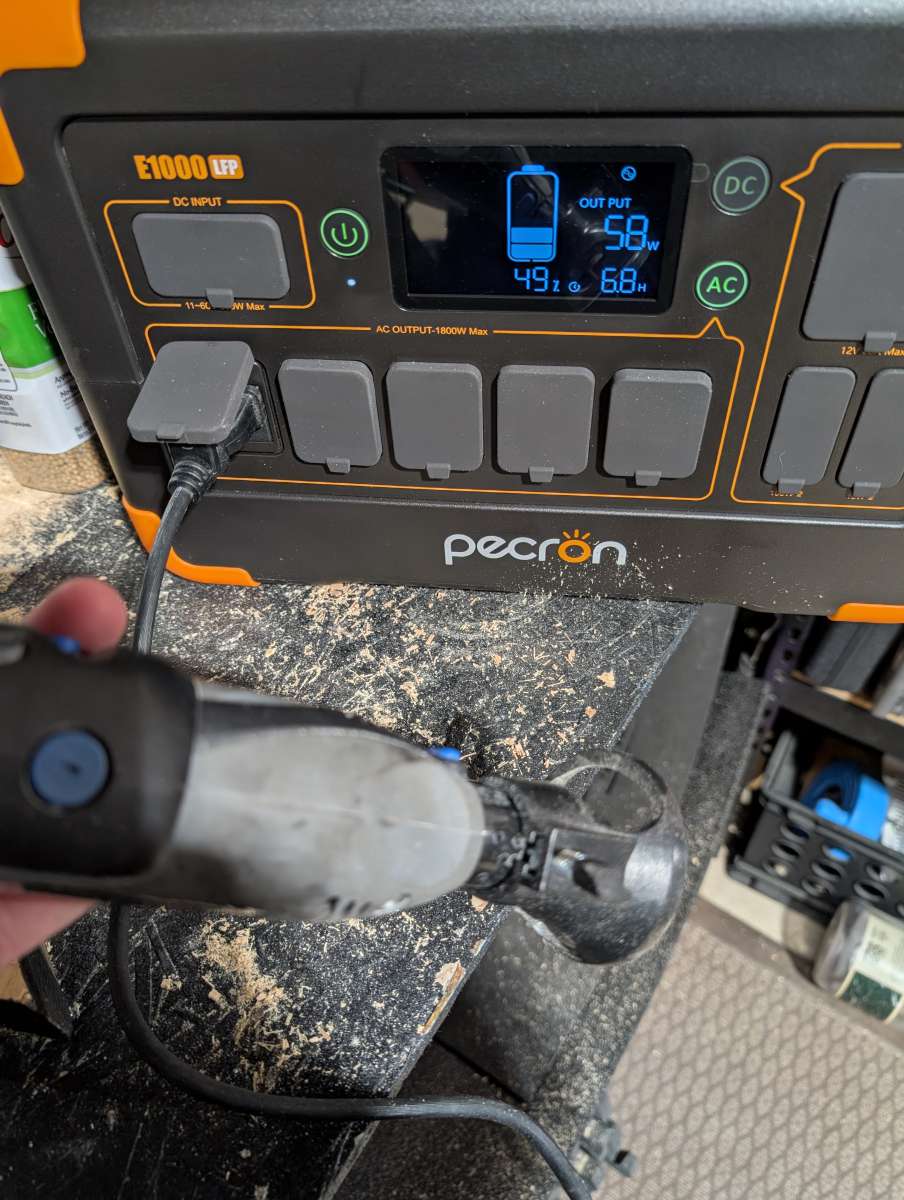
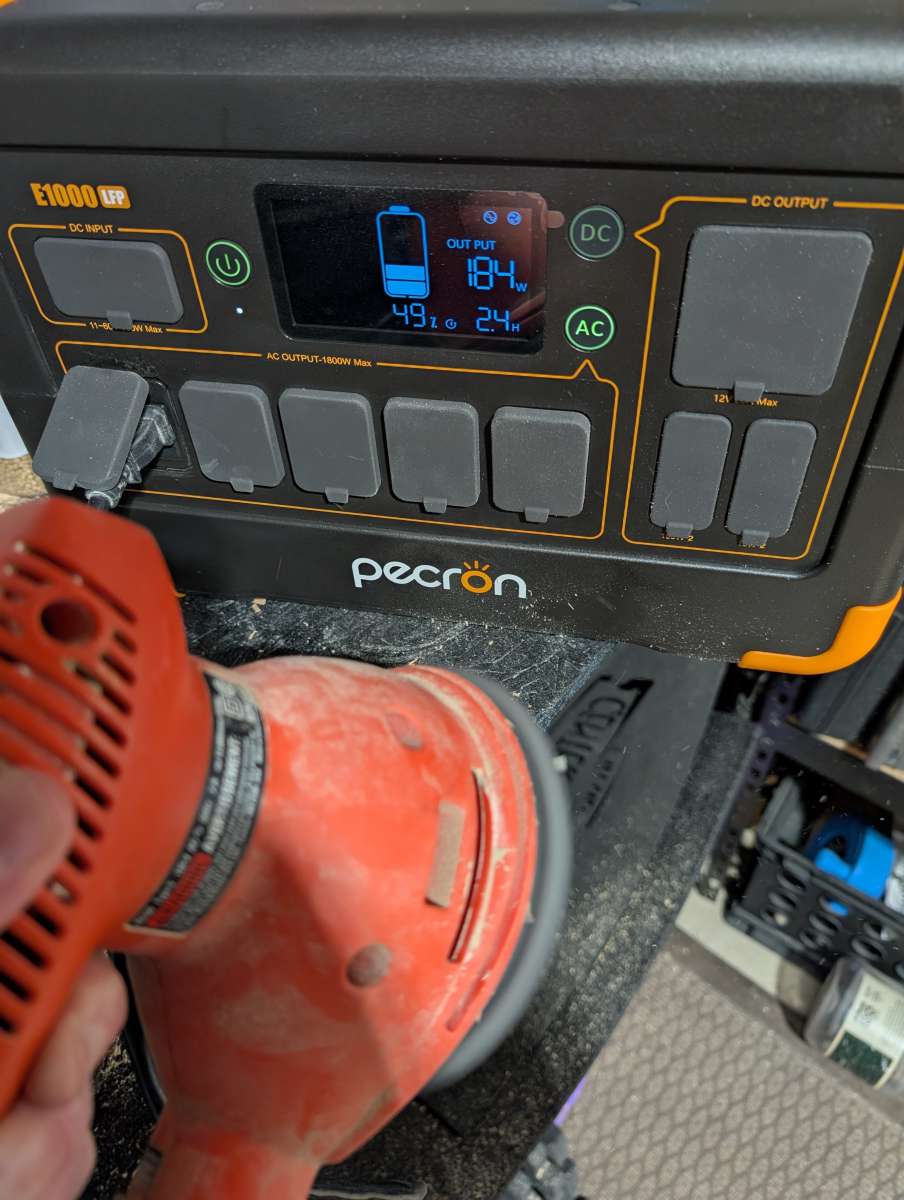
Final thoughts
The PECRON E1000LFP is a great power station. I’ve carried this out and about and while it’s not light, it’s definitely manageable by the average person. It has a good power-to-size ratio for what you get. I can easily throw this in the trunk of my car. I think it’s a great option and will get you through shorter power outages and give you some power portability away from established power sources. The labeling is great as everything is clearly designated and it would be hard to confuse things. I definitely recommend this power station!
What I like about the PECRON E1000LFP Portable Power Station
- Solid design and case with handles that make it easy to carry around
- Display is great and shows input/output and estimated time remaining at current consumption
- Quiet running, even when the cooling fans kick on
- High output is very useful, especially for high draw devices
- Excellent labeling. Everything is clearly defined and marked
- Every port is covered
What needs to be improved?
- Nothing I’ve found so far
Price: $399.00 (regular price is $799.00)
Where to buy: Pecron and Amazon
Source: The sample of this product was provided for free by Pecron. Pecron did not have a final say on the review and did not preview the review before it was published.
Check out these other reviews!
- PECRON E3600LFP Portable Power Station review – kick power outages in the butt
- Oupes Exodus 1200 Power Station review
- VTOMAN FlashSpeed 600 Power Station review
- EcoFlow River 3 Plus Power Station review



Gadgeteer Comment Policy - Please read before commenting
I have the same unit, like the packaging – the covered ports and number of them was one of the reasons I got it. Unfortunately I found three issues that make me wish I’d bought something else.
Firstly the app is lacking in capabilities and a bit half-baked – there’s no way to have it send me a notification if the unit loses power. They do have a way to trigger other behaviors on the unit itself, but just a simple Android notification isn’t possible. They should make the app/device integrate with Google Home / Apple so you can build automations based on the state – like if the battery is < 50% turn some non-essential things off. If < 20% send a notification etc. My Android app also had untranslated Chinese menu options in it and overall it just doesn't seem very polished.
Secondly I use it in UPS mode in my shed – basically as a buffer between my shed power and loads. If I connect a powerstrip with any kind of surge protection – which almost all do now – then a load on that powerstrip will trip the GFCI on the circuit my shed gets its power from. That ain't right.
Thirdly when the unit is powering AC loads and I disconnect it from my shed power the power cord has 74V between the hot and neutral pins. That's enough that I can feel tingling in my fingers when I touched them by accident. That ain't right.
Point one can hopefully be fixed as their Android support matures. Points two and three took a couple of weeks of back and forth with their tech support – which must be in China even though they have a California address – to be told the device must be faulty and get an RMA to return it for repair since apparently they won't replace it, just repair. At least with the RMA they paid the high cost of shipping a 30lb weight back to their US location.
With hindsight I wish I'd gone with Bluetti or Jackery in the first place but hey, I wanted to support the new upstart in the solar battery space. If it comes back with the same issue I'll definitely be asking for a refund since having 74V coming out of the plug really doesn't fill me with confidence of their QA or original design.
Thanks for the feedback. I definitely did not exercise the UPS functionality to that degree, so I appreciate the additional analysis. I primarily use it as a portable power source in places where running an extension cord is not possible or a pain.